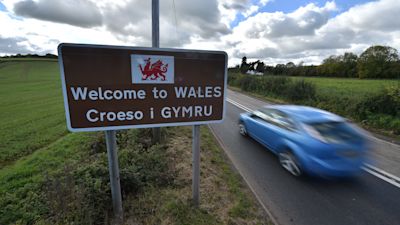Exclusive: ITV News uncovers loophole in Welsh coronavirus travel rules

ITV News has uncovered an anomaly in Welsh coronavirus law that allows visitors from countries with high rates of Covid-19 to travel to low coronavirus incidence parts of Wales, even though similar UK based visitors are banned.
The Welsh government currently permits anyone from a country with worryingly high Covid-19 infections to visit parts of Wales not currently subject to a local lockdown as long as they quarantine for two weeks.
In effect, this means that tourists from outside of the UK may find it easier to get into Wales than some people who live in the UK.
Quarantining is not available to anyone wanting to travel from England, Scotland or Northern Ireland and is currently subject to a local lockdown.
The Welsh laws that come into effect at 6pm on Frdiday focus solely on the home nations providing a long list of who cannot enter the country.
International travellers remain unaffected and welcome in much of Wales.
In a statement, the Welsh Government said: “International travel regulations are already in place, which require people coming into Wales from nations with high levels of coronavirus to self-isolate for two weeks."
"People are currently not able to enter an area subject to local restrictions in Wales without a reasonable excuse. This includes visitors from outside the UK.”
Eagle-eyed readers will note the statement only refers to an “area subject to local restrictions”.
In short, you can probably come from Belgium but Brummies are banned.
Shadow Health Minister Andrew RT Davies said: “This just shows how ridiculous the regulations are, and in particular the way they discriminate against people who share the same citizenship.
"However, given Mr Drakeford’s pivot away from the science and into the pulpit of Welsh nationalism, it is not surprising!"